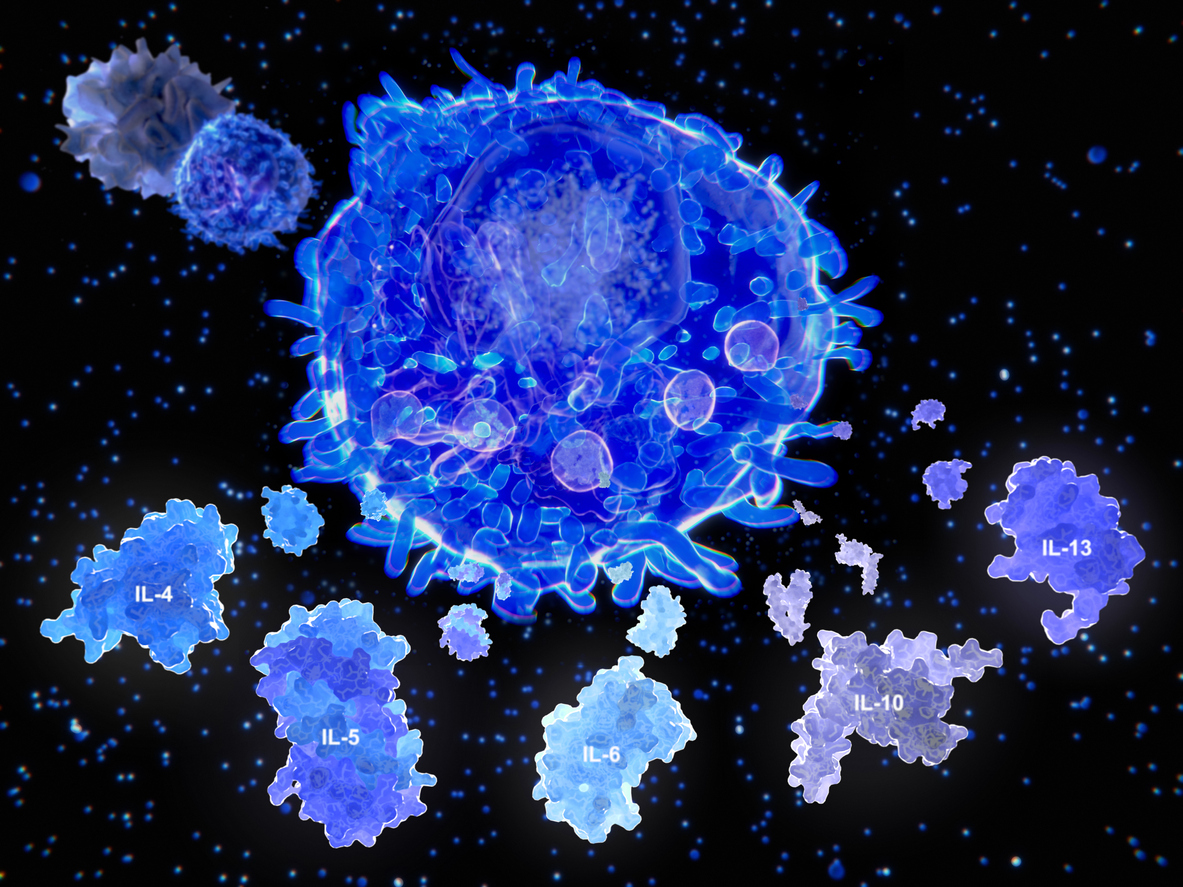'Cytokine storms' are a deadly problem in COVID-19. Researchers are testing promising solutions.


A free daily email with the biggest news stories of the day – and the best features from TheWeek.com
You are now subscribed
Your newsletter sign-up was successful
Some of the worst cases of COVID-19 involve patients who appear to get better then suddenly deteriorate, their lungs and other organs failing under an overwhelming immune response called a "cytokine storm." Cytokines are proteins sent out by a body's adaptive immune system — B and T cells — to recruit other immune cells to fight an infection. When the immune system doesn't shut off the cytokines, a storm of cells overwhelms organs, exhausting a body's immune response, causing dangerous inflammation, and attacking healthy tissues.
In COVID-19, scavenger cells called macrophages apparently attack and inflame the lungs, allowing liquid to fill air sacs and causing acute respiratory distress syndrome. An otherwise healthy woman in her 20s had a double lung transplant because COVID-19 irreparably destroyed her lungs, a Chicago hospital announced Thursday.
"It has become increasingly clear in the past few months that, at least in a subset of people who have the virus, calming the storm is the key to survival," The New York Times reports. Researchers are starting trials on several drugs to prevent or pacify cytokine storms, and others have reported some success with a dialysis-like device called CytoSorb that filters out cytokines from a patient's blood and returns it to the body.
The Week
Escape your echo chamber. Get the facts behind the news, plus analysis from multiple perspectives.

Sign up for The Week's Free Newsletters
From our morning news briefing to a weekly Good News Newsletter, get the best of The Week delivered directly to your inbox.
From our morning news briefing to a weekly Good News Newsletter, get the best of The Week delivered directly to your inbox.
In China and Italy, doctors had some success with a drug called tocilizumab, marketed as Actemra by Roche, which blocks the cytokine interleukin-6 (IL-6). Another drug, Kineret, blocks a different cytokine, IL-1. A recent study published in the journal Science Immunology reported promising preliminary results from an AstraZeneca cancer drug called Calquence, or acalabrutinib, which aims to stop the cytokines at their root. Using a drug like tocilizumab is "like cutting the branches off a tree," Dr. Louis Staudt, a National Cancer Institute scientist and a lead investigator on the study, tells the Times. "Acalabrutinib is going for the trunk of the tree." AstraZeneca has plans to test the drug in larger trials.
A free daily email with the biggest news stories of the day – and the best features from TheWeek.com
Peter has worked as a news and culture writer and editor at The Week since the site's launch in 2008. He covers politics, world affairs, religion and cultural currents. His journalism career began as a copy editor at a financial newswire and has included editorial positions at The New York Times Magazine, Facts on File, and Oregon State University.
-
 The Olympic timekeepers keeping the Games on track
The Olympic timekeepers keeping the Games on trackUnder the Radar Swiss watchmaking giant Omega has been at the finish line of every Olympic Games for nearly 100 years
-
 Will increasing tensions with Iran boil over into war?
Will increasing tensions with Iran boil over into war?Today’s Big Question President Donald Trump has recently been threatening the country
-
 Corruption: The spy sheikh and the president
Corruption: The spy sheikh and the presidentFeature Trump is at the center of another scandal
-
 TikTok secures deal to remain in US
TikTok secures deal to remain in USSpeed Read ByteDance will form a US version of the popular video-sharing platform
-
 Unemployment rate ticks up amid fall job losses
Unemployment rate ticks up amid fall job lossesSpeed Read Data released by the Commerce Department indicates ‘one of the weakest American labor markets in years’
-
 US mints final penny after 232-year run
US mints final penny after 232-year runSpeed Read Production of the one-cent coin has ended
-
 Warner Bros. explores sale amid Paramount bids
Warner Bros. explores sale amid Paramount bidsSpeed Read The media giant, home to HBO and DC Studios, has received interest from multiple buying parties
-
 Gold tops $4K per ounce, signaling financial unease
Gold tops $4K per ounce, signaling financial uneaseSpeed Read Investors are worried about President Donald Trump’s trade war
-
 Electronic Arts to go private in record $55B deal
Electronic Arts to go private in record $55B dealspeed read The video game giant is behind ‘The Sims’ and ‘Madden NFL’
-
 New York court tosses Trump's $500M fraud fine
New York court tosses Trump's $500M fraud fineSpeed Read A divided appeals court threw out a hefty penalty against President Trump for fraudulently inflating his wealth
-
 Trump said to seek government stake in Intel
Trump said to seek government stake in IntelSpeed Read The president and Intel CEO Lip-Bu Tan reportedly discussed the proposal at a recent meeting
